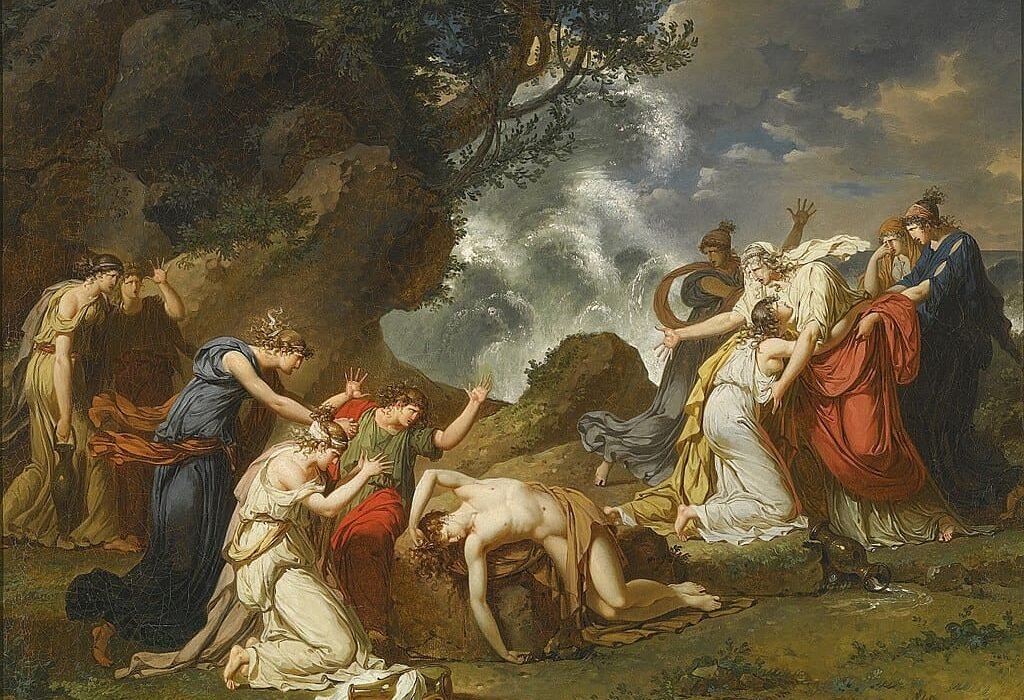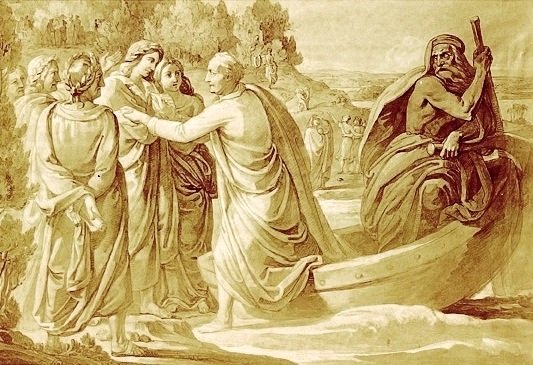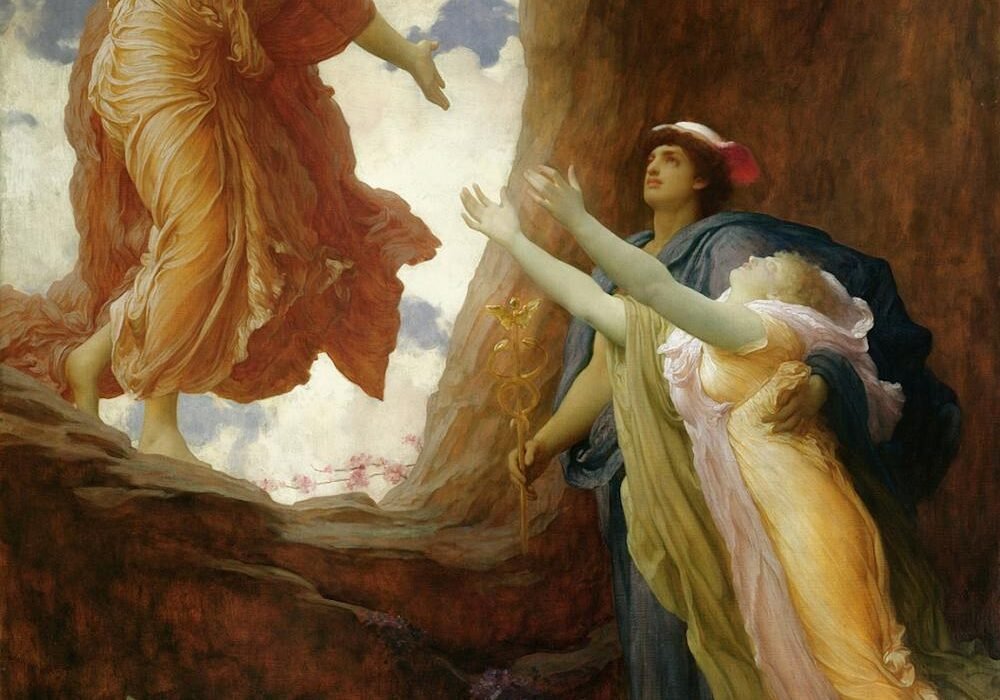High upon the slopes of Mount Parnassus in central Greece, shrouded in mist and myth, stood the most powerful oracle of the ancient world—the Oracle of Delphi. For more than a thousand years, kings and peasants, generals and philosophers, travelers and emperors made pilgrimages to this sacred sanctuary. They came not simply for fortune-telling but to seek the voice of a god—the god Apollo, radiant with light, prophecy, and truth.
Delphi was no ordinary place. It was considered by the Greeks to be the omphalos, the “navel of the world,” the exact center of the earth. Here, in a sanctuary carved out of stone and time, human beings believed they could hear the will of the divine. The words that drifted from Delphi shaped wars, determined the rise and fall of empires, influenced art and philosophy, and even guided the very foundations of Western civilization.
Yet, beyond the grandeur of myth lies a fascinating story woven of religion, geology, psychology, politics, and human imagination. The Oracle of Delphi was not only the voice of Apollo—it was the heartbeat of an age, where the sacred and the scientific often blurred into one.
The Birth of a Sacred Sanctuary
According to Greek mythology, Delphi’s sacredness began long before Apollo claimed it. In the most ancient tales, the site was once guarded by a monstrous serpent or dragon named Python. Apollo, in his youthful might, slew Python and took possession of the sanctuary. From then on, Delphi belonged to Apollo, and the god appointed a priestess, called the Pythia, to speak in his name.
But Delphi’s power also arose from its geography. Nestled in a dramatic mountain landscape, the site evoked awe. The slopes of Mount Parnassus were alive with springs, caves, and natural formations that inspired mystery. The Castalian Spring, in particular, became central to the rituals of purification for priests and pilgrims alike. The Greeks saw in Delphi not just a location but a crossroads between the human and the divine, the earthly and the eternal.
The Pythia: A Woman as the Voice of Apollo
At the heart of the Oracle of Delphi was not a priest or a king but a woman—the Pythia. She was the high priestess chosen to channel Apollo’s voice. The Pythia was no ordinary woman. Selected from among Delphi’s citizens, she was required to live a life of purity and devotion. On the days of prophecy, she would enter the inner chamber of the temple, sit upon a tripod, and inhale vapors that rose from the earth.
In a trance-like state, she would utter words, sometimes clear, sometimes cryptic, believed to be Apollo speaking through her. These responses were then interpreted and shaped into poetic form by the priests of Delphi, who delivered them to the waiting supplicants.
What made the Pythia extraordinary was not only her role as a conduit for the divine but also her position in a deeply patriarchal society. In a world where women’s voices were often silenced, the most powerful voice in Greece was that of a woman sitting upon the tripod at Delphi. Kings, warriors, and philosophers bowed before her words.
The Ritual of Prophecy
The process of consulting the Oracle was elaborate, steeped in ritual and reverence. Supplicants approached the sanctuary after long journeys, carrying offerings—treasures, statues, gold, and even entire buildings donated by cities hoping to gain Apollo’s favor. Before approaching the Pythia, the seeker would purify themselves at the Castalian Spring, offering sacrifices at the altar, often burning laurel leaves or pouring libations of wine.
On the day of prophecy, the Pythia would chew laurel leaves, sacred to Apollo, and sit upon her tripod within the adyton, the innermost chamber of the Temple of Apollo. As vapors rose from a fissure in the earth, she would fall into her trance, her body trembling, her voice altered. The words she spoke were often fragmented, ambiguous, and layered with meaning.
The priests of Apollo would then take her utterances and shape them into hexameter verse, the poetic rhythm of epic Greek tradition. Thus, the answers were delivered—both revealing and concealing truth, often in riddles that could be interpreted in multiple ways.
The Power of Ambiguity
The genius of the Oracle lay not in giving simple answers but in speaking with ambiguity. Her words could be interpreted in several directions, leaving space for human choice while still carrying the aura of divine authority.
For example, when King Croesus of Lydia asked if he should attack Persia, the Oracle replied: “If you cross the Halys River, a great empire will fall.” Croesus assumed this meant Persia would fall, but it was his own empire that collapsed. Similarly, when the Athenians sought advice during the Persian Wars, the Oracle told them to trust in their “wooden walls.” Some took this literally, others figuratively. In the end, it was the Athenian navy—their “wooden walls”—that secured victory at Salamis.
This deliberate ambiguity was part of the Oracle’s brilliance. It allowed her prophecies to remain relevant regardless of outcome. But it also reflected a deeper truth about human life: the future is never absolute, and destiny often lies in interpretation.
Delphi as the Navel of the World
Central to Delphi’s identity was its symbolic role as the “center” of the earth. According to myth, Zeus released two eagles from opposite ends of the world, and they met above Delphi. Here, the gods placed the omphalos stone, the navel of the world, marking Delphi as a cosmic axis where heaven, earth, and the underworld met.
This belief gave Delphi not only religious significance but also political power. To consult Delphi was not just to speak to Apollo—it was to reach the very heart of existence. The sanctuary became a neutral ground, a place where city-states that often fought one another could find shared reverence.
The Oracle’s Influence on History
The Oracle of Delphi was more than a mystical presence; it was a political force that shaped history. Leaders sought her approval before founding colonies, embarking on wars, or drafting laws. Cities competed to build treasuries at Delphi, filling them with offerings that displayed wealth and devotion.
Spartan kings consulted the Oracle before military campaigns. Themistocles, the Athenian general, used her prophecy about “wooden walls” to rally the fleet that defeated Persia. Even philosophers like Socrates referenced Delphi. When the Oracle declared that no one was wiser than Socrates, it set him on a lifelong journey of questioning, forming the foundation of Western philosophy.
Delphi’s reach extended beyond Greece. Foreign rulers such as Croesus of Lydia and later even Roman emperors sought its wisdom. The Oracle’s reputation as the voice of Apollo made it one of the most trusted and feared institutions in the ancient world.
The Science Behind the Sacred
For centuries, people believed the Pythia’s trances were divine. But modern science offers fascinating insights into what might have been happening. Geological studies have shown that the sanctuary at Delphi sits above a fault line where two tectonic plates meet. This fault releases gases, including ethylene, which can induce trance-like states and euphoria when inhaled.
The descriptions of the Pythia trembling, her altered voice, and her ecstatic state align with the known effects of ethylene intoxication. The sacred vapors of Delphi, once thought to be the breath of Apollo, may have been natural gases seeping from the earth.
This does not diminish the Oracle’s significance—it enhances it. The intertwining of geology and religion shows how natural phenomena can become sacred experiences. The earth itself seemed to speak at Delphi, and the Greeks interpreted this voice as Apollo’s.
Decline of the Oracle
For over a millennium, the Oracle of Delphi reigned supreme. But like all human institutions, it eventually declined. As Greece fell under Roman rule, the Oracle remained influential but gradually lost its central role. New religions, especially Christianity, began to challenge its authority.
By the 4th century CE, Emperor Theodosius I, a Christian ruler, officially closed the sanctuary. The voice of Apollo fell silent, replaced by the new faith that spread across the Mediterranean. The temples crumbled, the sacred fires extinguished, and the once-thriving sanctuary became ruins.
Yet, even in silence, Delphi’s legacy endured. Its stories, prophecies, and mysteries continued to echo through history, inspiring poets, historians, and dreamers.
The Legacy of Delphi
Today, the ruins of Delphi remain one of the most visited archaeological sites in Greece. Travelers walk among the broken columns of the Temple of Apollo, gaze upon the treasuries of long-vanished city-states, and drink from the Castalian Spring. Though silent, the stones whisper of the voices that once echoed there.
Delphi’s legacy is not just archaeological—it is cultural and philosophical. It represents the eternal human desire to seek guidance, to understand the unknown, to bridge the gap between human uncertainty and divine wisdom. Its ambiguity reminds us that truth is not always simple, and that wisdom often lies in interpretation.
In the modern age, we may no longer climb Mount Parnassus to seek Apollo’s voice, but we still ask the same questions: What should I do? What is my destiny? How should we live? In every search for meaning, every act of interpretation, every attempt to balance reason and mystery, the spirit of Delphi lives on.
The Oracle as a Mirror of Humanity
Perhaps the greatest secret of Delphi is this: the Oracle did not simply reveal the will of Apollo—she reflected the hopes, fears, and ambitions of those who came to her. Her words were shaped as much by the seeker’s mind as by divine inspiration. In this sense, Delphi was a mirror where humanity gazed at itself through the mask of a god.
To stand before the Oracle was to confront one’s own desires and uncertainties, to see destiny not as an imposed fate but as a dialogue between divine possibility and human choice.
Delphi, then, was not merely the voice of Apollo. It was the voice of humanity, searching for meaning in a world where the future is always uncertain, where the line between the divine and the earthly is blurred, and where truth often hides within riddles.






